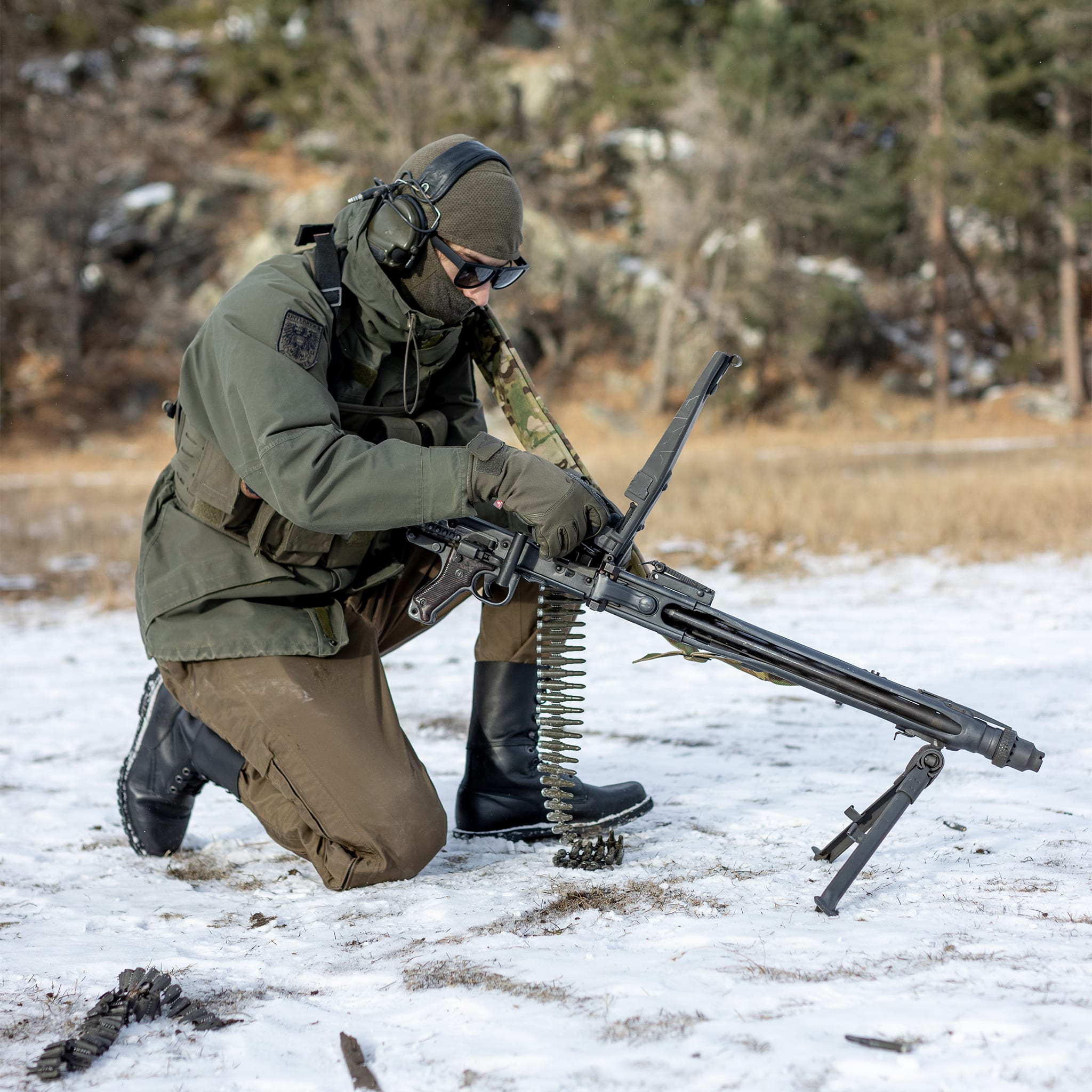Into The Jaws Of Death: Normandy Invasion 80th Anniversary
80 years ago, they charged into the jaws of death. So today we tell their story...
On France's northern coast in 1940, the Allied effort in Europe was arguably in one of it's deepest troughs. The Dunkirk evacuation would miraculously pull far more than a quarter of a million Allied troops off of the shores of a Fallen France, and The Battle of Britain would take place shortly after.
The pressure continued to build on Allies to liberate Axis-controlled Europe, and while Northern Africa had been liberated and an invasion of Sicily was underway by 1943, an invasion of northern France was long thought to be Unthinkable. It would require an absurd amount of power both man and machine, so the Allies would bide their strength for years...
Operation Neptune, known famously as "D-Day" occurred after years of planning and experience from the allied campaign in the Mediterranean. The goal was to establish a foothold well into the French town of Caen by landing on the "Utah", "Omaha", "Gold", "Juno" and "Sword" beach sectors.
It was a logistical nightmare - mines needed to be cleared, temporary ports needed to be built, and the Germans had flooded the fields creating endless mud for troops & vehicles to traverse upon their landings. The "Atlantic Wall" would mean that they would face immediate defenses & traps when they landed ashore. Worse yet, the invasion would be delayed by an entire month, and risky weather made invasion day itself have much choppier seas for the troops on landing craft to brave.
At midnight on the morning of D-Day, northern France would erupt with the sound of countless bone-rattling explosions from over two thousand British, Canadian, and U.S. Bombers. Shortly after, minesweeping ships would clear the path for the massive fleet of destroyers & battleships who wouldn't even be detected until hours into the invasion thanks to a previous operation to destroy German radars.
Airborne operations started shortly after to pave a path for the invasion and take down key objectives — this too wouldn't go exactly to plan with troops ending up off course, being killed by flak or machine gun fire, or drowning in the mud fields. Even after an entire day, Only a third of the forces dropped in the 101st and 82nd airborne were organized and under control by their divisions, which did have the unintended effect of confusing the Germans. Glider-bound reinforcements would arrive shortly before dawn and face many of the same difficulties: off target, drowned in a swamp, and cargo disorganized.
Finally, the part we've all come to know: Early in the morning, the beach landings would take place. On Omaha, the most heavily defended beach, landing crafts full of troops would run aground on sandbars forcing men to wade hundreds of feet in water up to their necks under heavy fire to reach the beach. Hours after the landings, with little progress made, casualties climbed well past 2,000 men. Only a few hundred would manage to reach the higher ground on the cliffs, and finally by noon the Germans were finally bruised enough to allow many of the troops to exit the slaughterhouse that was the beach.
As for the other beaches, the situation wasn't any less dire, with Canadian forces at "Juno" and British forces at "Sword" suffering casualties as high as 1000 men each. The total casualties of the largest amphibious invasion in history would be well over 10,000 with 4,414 confirmed dead. Out of the 160,000 who crossed the channel that day, it's a substantial blow.
But we don't know this day as a disaster, rather the beginning of the Allies' greatest triumph. The result of the successful landing wouldn't bear it's full fruit until late July that year, but in less than a month nearly a Million men would also disembark in France to begin the long haul towards Berlin. Hitler would fail to "Throw the allies back into the sea" and would slowly watch his empire crumble in a 2-front sandwich with Stalin's Red Army coming from the East. Many regard it as the most important turning point in World War II's history and we'd be inclined to agree.






